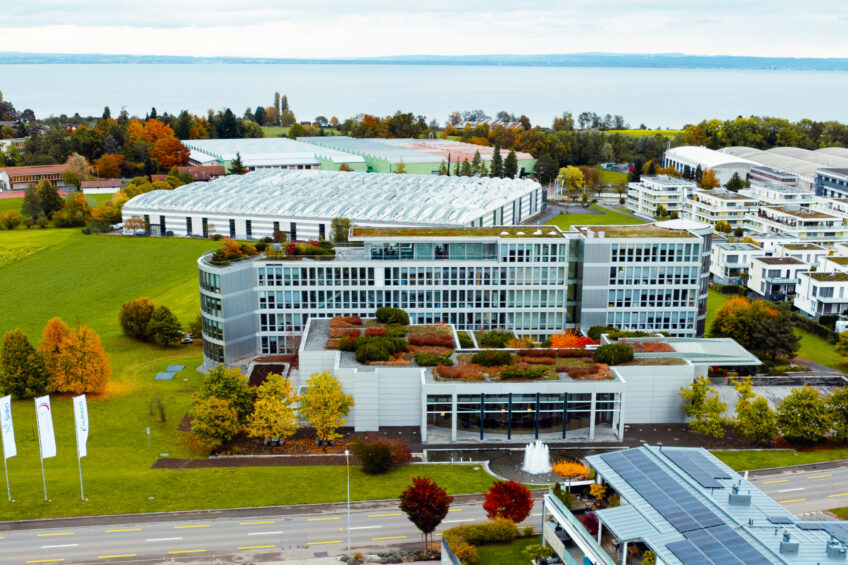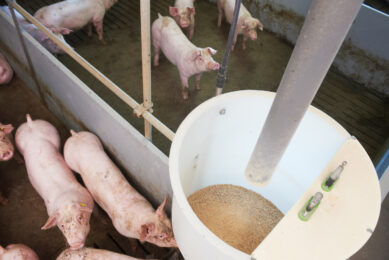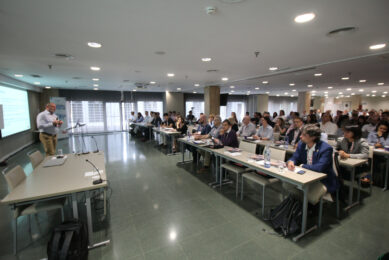Garden of the Future aims to unleash the power of plants

Plants are likely to take a more pivotal role in the composition of pig feed solutions of the future. To learn more about plants, more studying and experiments are needed. Arbon, Switzerland, was the setting for Nutreco’s recent opening of the “Garden of the Future”, which is to be the heart of the phytotechnology programme of animal nutrition company Nutreco.
The Garden of the Future includes a 500 m2 experimental greenhouse for plant breeding and propagation and about 30 ha of cultivation ground. In addition, there is a designated space to showcase the novel plants at the facility. Arbon is part of “PhytoValley”, a cluster of companies bringing together all kinds of phytotechnological companies. The Nutreco facility will be led by Bernd Büter, plant domestication and cultivation director.
The idea to build the facility in Arbon came about in 2021 — with the official opening following in June 2024. At the opening, Nutreco CEO David Blakemore said, “What we are doing is harnessing the incredible power of plants”. He explained that there is a real need for innovation, believing the products that are produced at the facility will play an important role in helping the company achieve its ultimate goal, captured in its slogan Feeding the Future.
Solutions for the challenges of tomorrow
One of the speakers at the opening was Remco van Reenen, managing director global marketing at Nutreco’s livestock feed business line. He said that, in the animal protein value chain, there is around 40% of waste. He mentioned that if the genetic potential of animals could be increased from 60% to 80% and in combination with the decrease in waste within the value chain, it could produce 50% more animal protein. He concluded by saying, “When we talk about plants, it’s about harnessing the power through the animal, the host”.
Andreas Bleiker, director of PhytoValley, spoke about the strategic role and mission of the cluster. PhytoValley has a number of renowned phyto-producing companies, a community of professionals and businesses that have taken on the task of tapping into the beneficial properties of nature. One of his conclusions was that the complexity of health problems calls for multi-substance solutions, which can be found in nature.
Dr David Bravo, chief science officer at Nutreco, then pointed out that the plant kingdom has over 390,000 species. “Plants use their energy for biochemistry energy, they produce 1 million molecules, the majority of which are specialised metabolites”, he said. He explained that those chemical molecules that are found in the plants are in fact vehicles that transfer information between the plant and its environment. If that information could be better understood, then plants could be used for many more things. This is what he called “plant genius”.
Integrated intelligence
The opening was concluded by a number of workshops. One of those addressed phytochemistry and integrated intelligence, presented by ethnobotanist Dr Karin Berger, plant discovery director, together with Dr Bravo. The presentation talked about the company’s algorithm programme which identifies complex plants capable of solving complex market issues. A second algorithm can then produce those same plants to a sufficient scale.
Dr Bravo spoke about plant molecules, creating the best “mother plant”, the complexity of plants and cultivation. He dove into plant genotype and illustrated the fact that, although some plants may look the same, their genes may be different.
Dr Berger explained about phytochemistry, the research that has been conducted and creating novel solutions. She indicated the step-by-step process required to produce phyto-solutions for the industry. She also shared her knowledge on plant compounds and how the algorithm created can help find the right plant species to deal with specific health issues.











